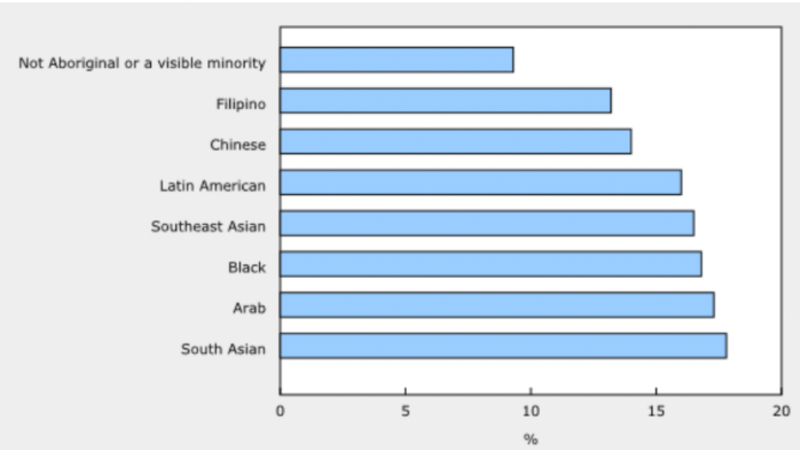A Brief Colonial History Of Ceylon(SriLanka)
Sri Lanka: One Island Two Nations
A Brief Colonial History Of Ceylon(SriLanka)
Sri Lanka: One Island Two Nations
(Full Story)
Search This Blog
Back to 500BC.
==========================
Thiranjala Weerasinghe sj.- One Island Two Nations
?????????????????????????????????????????????????Wednesday, June 30, 2021
COVID-19 has worsened South Asian women in Canada’s struggle to find jobs
Innovative employment services are needed to identify and address many of the key barriers they are facing
 |
South Asian women are finding it increasingly difficult to find meaningful employment in Canada
| Gregory Holmgren / Alamy Stock Photo
Manjeet Dhiman-29 June 2021
Marginalized communities face many barriers when accessing the labour market. This was true before the COVID-19 pandemic and, unfortunately, securing meaningful employment in Canada has now become even more challenging.
As we continue to observe and experience the complex economic and social impacts of the pandemic, we see the disproportionate impact on women, racialized individuals, and other disadvantaged communities. Among those impacted are South Asian women, who are finding it increasingly difficult to successfully secure or retain meaningful employment.
They are often compelled to take ‘survival’ jobs that may be far below their skill and experience levels. During the pandemic, they have been disproportionately affected by job loss, as they are overrepresented in hard-hit industries such as food and accommodation services, and as essential workers in precarious sectors and jobs.
Clearly, the pandemic has amplified some of these barriers. In February 2020, before the lockdowns began, immigrant women represented approximately one-quarter (26.1%) of all female workers over the age of 15, but they represented close to half (45.0%) of the employment losses as of mid-July 2020. The South Asian community overall has experienced high rates of unemployment, with the highest (nearly 18%) among racialized groups in July 2020.

At ACCES Employment, a non-profit, charitable organization that supports jobseekers from diverse backgrounds to integrate into the Canadian labour market, more than 40% of female clients are newcomer women from South Asia (India, Bangladesh, Pakistan, and Sri Lanka).
The most prevalent barriers to employment in general include a lack of information, guidance and language skills, as well as difficulties in obtaining references or having foreign credentials recognized. Immigrants seeking employment may also face prejudices, stereotypes and discrimination; challenges with cultural integration; and struggles with health and wellbeing.
Women are more likely to be admitted to Canada under the family class category, which seeks to reunite Canadian citizens and permanent residents with close family members, and, statistically, South Asian women newcomers, more than any other group, are likely to live with family when coming to Canada. In the past year, the concern and stress associated with caring for family members has increased, as the pandemic has disproportionately impacted South Asian communities. This has also affected their ability to enrol in and focus on job search training. This is why ACCES has provided a full range of asynchronous online programs and services to provide more flexibility to South Asian Women so they can access support at their convenience.
ACCES also connects jobseekers to in-demand roles by leveraging our relationships with thousands of employers. Our employer representatives participate in programming in various ways – as volunteers, guest speakers and mentors. Through this engagement, they can get to know candidates before making hiring decisions. In addition to employment opportunities, ACCES also refers individuals for training in cases where re-skilling or upskilling is the best option.
Finally, we know about the stress involved in trying to adapt to a new culture and incorporate unfamiliar cultural traits. This is something that South Asian women face and has been worsened recently by the scapegoating of South Asian communities in Canada for COVID-19’s spread. A recent Statcan report about the mental health of racialized groups revealed South Asians experienced the highest levels of anxiety and poor mental health on several measures.
Such stress has a negative effect on South Asian women’s ability to secure jobs and advance their careers. Integrative services, such as those at ACCES, demonstrate how developing networking and mentoring opportunities, providing training in workplace culture and communication techniques, and training in social and cultural norms, have a positive effect on South Asian women’s confidence, stress, and their ability to excel in their professional careers in Canada.
Despite these challenges, we have seen the positive gains that can be made through reflective and committed service supports, which includes tailored support for newcomer women and individualized support to each person.
This integrated service approach is nuanced with cultural sensitivity and support. ACCES Employment’s results are strong, and we are proud to support South Asian women and other jobseekers from diverse backgrounds as they successfully secure meaningful employment that advances their economic and social prosperit

